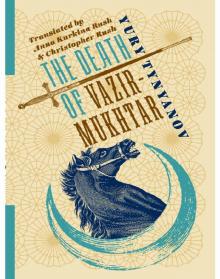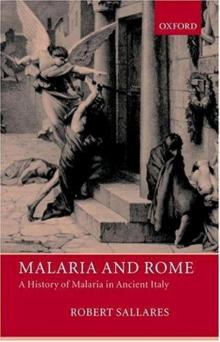The Death of Vazir-Mukhtar


Author: Yury Tynyanov
Category: Other3
Published: 2021
Series:
View: 408
Read OnlineThe Death of Vazir-Mukhtar, a novel by Yury Tynyanov, a leading figure of the Russian formalist school, describes the final year in the life of Alexander Griboedov, the author of the comedy Woe from Wit. As ambassador to Persia, Griboedov was savagely murdered in Tehran in 1829 in an attack on the Russian embassy.The novel is not only one of the central texts of Russian formalist literary production but also a brilliant meditation on the nature of historical and poetic consciousness and on literary creation. It is a complex and fascinating work on the nature of the relationship among individual memory, historical fact, and the literary imagination. The result is a hybrid text, containing elements of literary biography, the psychological existential novel, and the spy novel, and a deeply personal, almost confessional work about the relationship of the writer to his generation and the state. Written in 1927 and 1928, almost a century after the events it...
The Death of Vazir-Mukhtar, a novel by Yury Tynyanov, one of the leading figures of the Russian formalist school, describes the final year in the life of Alexander Griboedov, the author of the comedy Woe from Wit. As ambassador to Persia, Griboedov was murdered in 1829 by a Tehrani mob during the sacking of the Russian embassy. One of the central texts of Russian formalist literary production, the novel is a brilliant meditation on the nature of historical and poetic consciousness and of artistic creation. It is a complex and fascinating work that explores the relationships among individual memory, historical fact, and the literary imagination. The result is a hybrid text, containing elements of various genres—historical, biographical, existential, and adventure novels—and a deeply personal, almost confessional testament to the writer's relationship to his generation and the state. Completed in 1927, almost a century after the events it depicts, The Death of Vazir-Mukhtar marks the watershed between revolution and reaction. At a time when the Soviet regime was becoming increasingly restrictive of freedom of expression and conscience, Tynyanov grappled with the themes of disillusionment, betrayal, and unrealized potential. Unabashedly intellectual yet filled with intrigue and suspense, The Death of Vazir-Mukhtar is a great historical novel of Russian modernism.
Yury Tynyanov (1894–1943) was an influential literary historian, critic, translator, and theoretician of the cinema. He was a leading member of the formalist school of literary theory before achieving renown as a writer of historical fiction. His works include two other literary biographical novels, on Pushkin and Küchelbecker, as well as several shorter works of historical fiction. Anna Kurkina Rush and Christopher Rush previously translated Tynyanov's Young Pushkin: A Novel (2007).
The Death of Vazir-Mukhtar, a novel by Yury Tynyanov, one of the leading figures of the Russian formalist school, describes the final year in the life of Alexander Griboedov, the author of the comedy Woe from Wit. As ambassador to Persia, Griboedov was murdered in 1829 by a Tehrani mob during the sacking of the Russian embassy. One of the central texts of Russian formalist literary production, the novel is a brilliant meditation on the nature of historical and poetic consciousness and of artistic creation. It is a complex and fascinating work that explores the relationships among individual memory, historical fact, and the literary imagination. The result is a hybrid text, containing elements of various genres—historical, biographical, existential, and adventure novels—and a deeply personal, almost confessional testament to the writer's relationship to his generation and the state. Completed in 1927, almost a century after the events it depicts, The Death of Vazir-Mukhtar marks the watershed between revolution and reaction. At a time when the Soviet regime was becoming increasingly restrictive of freedom of expression and conscience, Tynyanov grappled with the themes of disillusionment, betrayal, and unrealized potential. Unabashedly intellectual yet filled with intrigue and suspense, The Death of Vazir-Mukhtar is a great historical novel of Russian modernism.
Yury Tynyanov (1894–1943) was an influential literary historian, critic, translator, and theoretician of the cinema. He was a leading member of the formalist school of literary theory before achieving renown as a writer of historical fiction. His works include two other literary biographical novels, on Pushkin and Küchelbecker, as well as several shorter works of historical fiction. Anna Kurkina Rush and Christopher Rush previously translated Tynyanov's Young Pushkin: A Novel (2007).
 Even for Me
Even for Me Malaria and Rome: A History of Malaria in Ancient Italy
Malaria and Rome: A History of Malaria in Ancient Italy In Things Unseen
In Things Unseen Black and Blue
Black and Blue Five Alarm Alphas
Five Alarm Alphas Fallen for Rock
Fallen for Rock Kirill (Bratva Blood Brothers, #15)
Kirill (Bratva Blood Brothers, #15) Mia's Spanking Diary
Mia's Spanking Diary